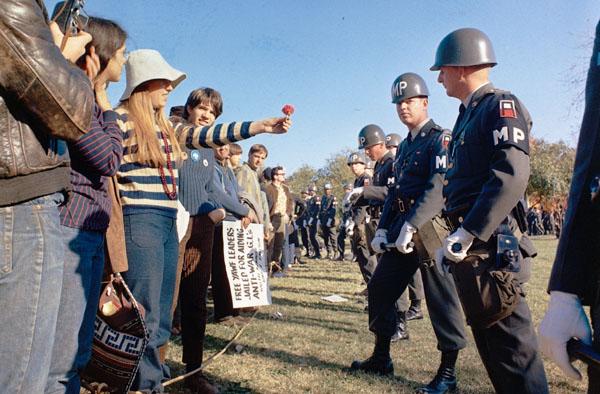Anti-war Demonstator Offering a Flower to a Military Policeman
A female demonstrator offers a flower to military police on guard at the Pentagon during an anti-Vietnam demonstration. Meeting military defense with flowers was a common tactic of anti-war protesters. Some demonstrators would hold them out as an offering like the woman below. Others placed it before their face as defense or in the barrels of guns. The action of defending and offering flowers demonstrated the protestors' intentions of a peaceful protest.

[Anti-war Demonstator Offering a Flower to a Military Policeman]. 1967. Photograph. Wikimedia Commons. https://en.wikipedia.org/wiki/File:Vietnamdem.jpg (Accessed December 10, 2018)
Public Domain
Public Domain is a copyright term that is often used when talking about copyright for creative works. Under U.S. copyright law, individual items that are in the public domain are items that are no longer protected by copyright law. This means that you do not need to request permission to re-use, re-publish or even change a copy of the item. Items enter the public domain under U.S. copyright law for a number of reasons: the original copyright may have expired; the item was created by the U.S. Federal Government or other governmental entity that views the things it creates as in the public domain; the work was never protected by copyright for some other reason related to how it was produced (for example, it was a speech that wasn't written down or recorded); or the work doesn't have enough originality to make it eligible for copyright protection.